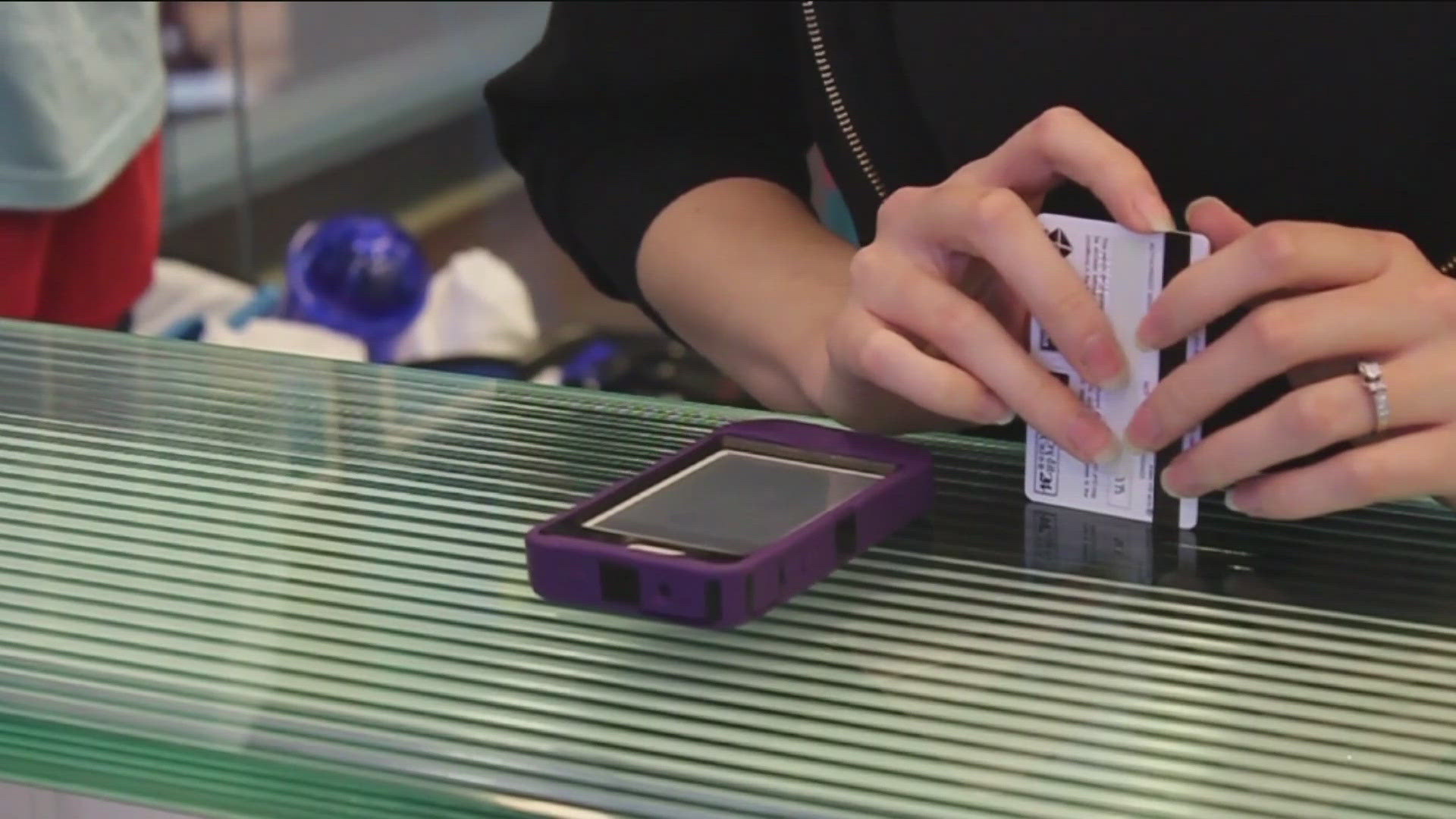SAN DIEGO — Credit card debt is out of control across the country, but it's increasing at the fastest rate, here in California.
According to WalletHub, the average household is in the red, by nearly $14,000.
Here is a list of all the states.
"There's a real correlation between those who are grappling with the cost of living in our great state and credit card debt, the size of our great state. Not a surprise," University of San Diego Finance Professor Dan Roccato said.
Financial experts say we are on the road to recovery. Inflation and interest rates are starting to moderate, but times have been tough. High rent, expensive gas and groceries have more Californians relying on credit cards to make ends meet.
"Credit cards can be your best friend if you pay the balance off every month and your worst enemy if you carry a balance," Roccato added.
WalletHub found average interest rates at 22% are only putting people further in the hole. The personal finance website analyzed data from the U.S. Census Bureau, the Federal Reserve and TransUnion to track changes.
"What this indicates, possibly is financial strain. It's very easy to get caught in that snowball of debt and have interest rates keep piling on top of your balance," Christie Matherne said, who is an Editor at WalletHub. "For me, personally when I see this study, it can make people feel less alone," she said.
In California, each household is carrying an average debt of $13,416. That's up $342 since January. We are increasing our debt at the fastest rate. Texas and Florida came in second and third and for comparison. Wisconsin has the slowest-growing credit card debt, with people there carrying an average balance of around $8,000.
"Track your spending, prioritize your expenses, cut out anything not necessary, stick to your budget and make sure you're saving something every month and if you're not - it might be time to reconsider, or find a side hustle, to get that money flowing," Matherne added.
To help us avoid getting deeper into the red, Professor Roccato added, "Research is very clear, when consumers use cash, they spend less - so let's go on a cash diet, also create friction with your credit card, hide it in your sock drawer, delete it from your shopping sites, make it hard to use."
Total credit card debt nationwide is $1.28 trillion. About half of us carry a balance.
"That tells us folks, a lot of folks, are having trouble keeping up," Roccato said.
WalletHub found that 13% of credit card users are only able to pay the minimum. "If you owe $5,000 - with 24% interest and can only pay the minimum, it's going to take you 22 years to pay off that balance, so that pizza you got last night, better be epic," the USD Professor said.
Our experts say your first step should be a call to your credit card company - possibly negotiate a lower rate or at least get them in the loop to avoid penalties and a knock to your credit score. Other options include personal loans and balance transfers.
From the best perks to the best balance transfer, WalletHub also analyzed 1,500 credit cards. Here is their top pick.
"If you've got decent credit, get a new credit card, they're usually good for up to 18 months zero interest, transfer your balance, you can pay it off without paying a boatload of interest expenses," Roccato said.
And if you're really in trouble, go to a non-profit credit counseling agency, like these:

